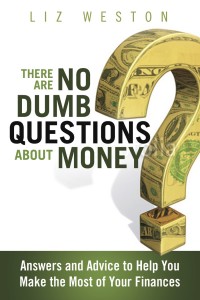Dear Liz: I’m about to marry an active-duty military man. We’re in the process of marrying our finances, and I have several questions.
First, what is a good emergency fund for us? We run our household on his salary because I’m recently unemployed. I’ve always had a six-month emergency fund for myself, but because he’ll theoretically always be employed, should we have less savings in emergency funds and more in retirement and investments?
Second, along with my unemployment, I’m bringing about $15,000 in savings and $9,000 in student loan debt (at 4.5%). He has about $5,000 in savings and no debt at all. Neither of us has a retirement account or any other investments. I’m leaning toward paying off my debt so that we start on even ground, but I have a feeling that you’re going to tell me not to do that. What should I be considering at this time?
Answer: The military offers good benefits and generous pensions to people who make the armed services their career. But the pension probably won’t cover all your expenses in retirement. (Remember, if he retires after 20 years of service, he’ll get only 50% of his base pay.) Besides, there’s really no such thing as “guaranteed” employment, even in the armed services, so it’s smart to have a Plan B.
Your husband-to-be should be taking advantage of the federal Thrift Savings Plan, which works like a 401(k) for civilians, although there’s no employer match for service members. He can contribute up to $17,000 a year ($17,500 in 2013), his contributions are excluded from his taxable income, and the money grows tax-deferred until it’s withdrawn in retirement, at which point it’s taxed as regular income.
The Thrift Savings Plan also has a Roth option. Withdrawals from a Roth in retirement are tax-free, although contributions usually are included in taxable income. The exception: If your fiance is deployed, most or all of his income would be tax-free, so he would be able to make contributions to the Roth with tax-exempt income, said Joseph Montanaro, a certified financial planner with USAA. That’s a pretty great deal: no tax on the contributions going in, and no tax on the withdrawals coming out.
If your man isn’t deployed, he still might want to divide his contributions between the regular and Roth plans so that he would have different savings “buckets” to tap in retirement and thus more control over his tax bill.
He probably wouldn’t get a full military pension if he leaves or is forced out of the military before he has served 20 years. But he would be able to take his Thrift Savings Plan balance with him.
When you return to work, you also should start contributing to a retirement fund. If you don’t have access to a 401(k) or 403(b), you might contribute to an IRA or a Roth IRA.
Although you would be smart to pay off any high-rate debt, such as credit card balances, you need not be in a rush to pay off low-rate, tax-deductible debt such as student loans, especially if the rate you’re paying is fixed. Instead, focus on building up that emergency fund. The exact amount you need is more art than science, but a six-month fund would be prudent.
